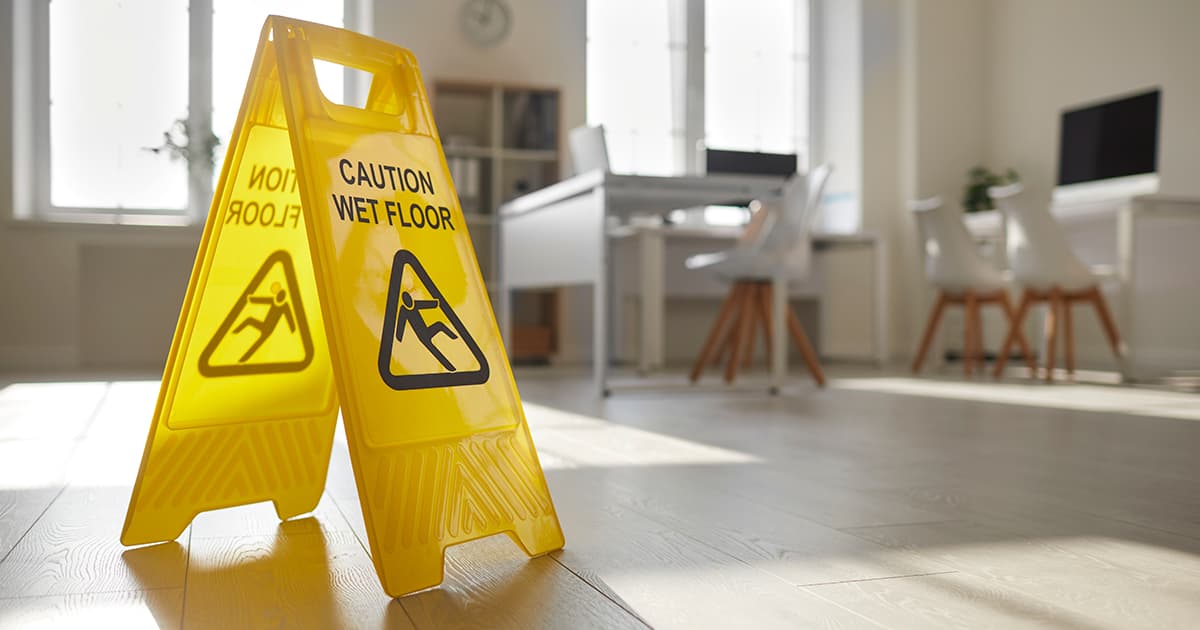How Does Liability Insurance Protect You?

If you own a business, liability insurance helps protect your business if it’s sued and found legally responsible for injuries to another person or for damage to their property.
You’ll also hear it called third-party liability insurance.
What is third-party liability insurance?
If you are a business owner, third parties are typically your customers or suppliers. This type of insurance helps protect you should you be sued by a client/supplier for an injury on your business’s premises or if their property is damaged at your place of business.
Third-party liability coverage is also found in policies for home and car owners and tenants.
We’ll start with how liability insurance protects businesses.
What kinds of liability insurance does a business need?
Commercial General Liability (CGL) Insurance
Commercial general liability insurance is also called “slip and fall” insurance and it’s essential for businesses.
How does CGL insurance protect your business?
This type of insurance helps protect your business against common claims like third-party property injuries. For example, CGL would cover you if a customer slips and falls on an icy sidewalk at your business, gets injured and sues you. It also covers you if a customer’s property is damaged at your business’s premises.
With CGL coverage, you’ll get funds up to your policy limits to cover damages awarded by the courts to compensate the third party (customer), cover your legal defense fees, and any settlement costs regardless of the outcome of the lawsuit you face.
It can also help you with a lawsuit alleging false advertising, and libel or slander.
Without CGL insurance, you would be paying for these expenses out of your own pocket.
The minimum, depending on the size of your business and what it does, is at least $1 million in CGL coverage and it’s often higher.
Professional Liability Insurance (Also called Errors and Omissions insurance)
Professional liability insurance helps protect your business against claims involving charges of professional negligence or failure to perform your professional duties.
It helps cover lawsuits alleging negligence, misconduct, or failure to deliver advice or services as promised.
Whether a claim is justified or not, defending a legal action can be expensive and have financial effects on your business.
Professional liability insurance claims can be:
- Work mistakes
- Claims of negligence
- Overspending
- Undelivered service
- Missing a deadline
Product Liability Insurance
This type of insurance provides protection against claims alleging third-party property damage or bodily injury caused by a product you sell, distribute, or manufacture.
Damages that would be covered by product liability insurance are typically the result of a defect in the design, manufacturing, or marketing of a product, or an incorrect label or a lack of safety warnings.
Did you know that liability insurance provides coverage for incidents involving third parties and does not cover you (as the business owner) and your employees.
Does my homeowner’s insurance have third-party liability insurance?
Your home insurance includes some third-party liability insurance that would cover injury or damage to personal property of third parties (guests, relatives for example) who are visiting your home.
It may cover the cost of legal expenses, medical bills, and replacement or repair of property, up to your policy limit.
Does my car insurance have third-party liability coverage?
Third-party liability insurance is mandatory in Canada, but each province or territory has its own specific minimum and regulations. Typically, it’s recommended that you have at least $1,000,000 in third-party liability coverage.
Third-party liability insurance covers drivers if they’re at fault in an accident and the other party is injured or killed. It also covers damages to the other person’s property and related repair costs.
Does my tenant insurance have third-party liability coverage?
A basic tenants' insurance policy usually covers up to $1 million for the amount you'd have to pay someone who sues you and wins.
This insurance would typically cover situations in which someone is accidentally injured at your apartment or their property is damaged.



